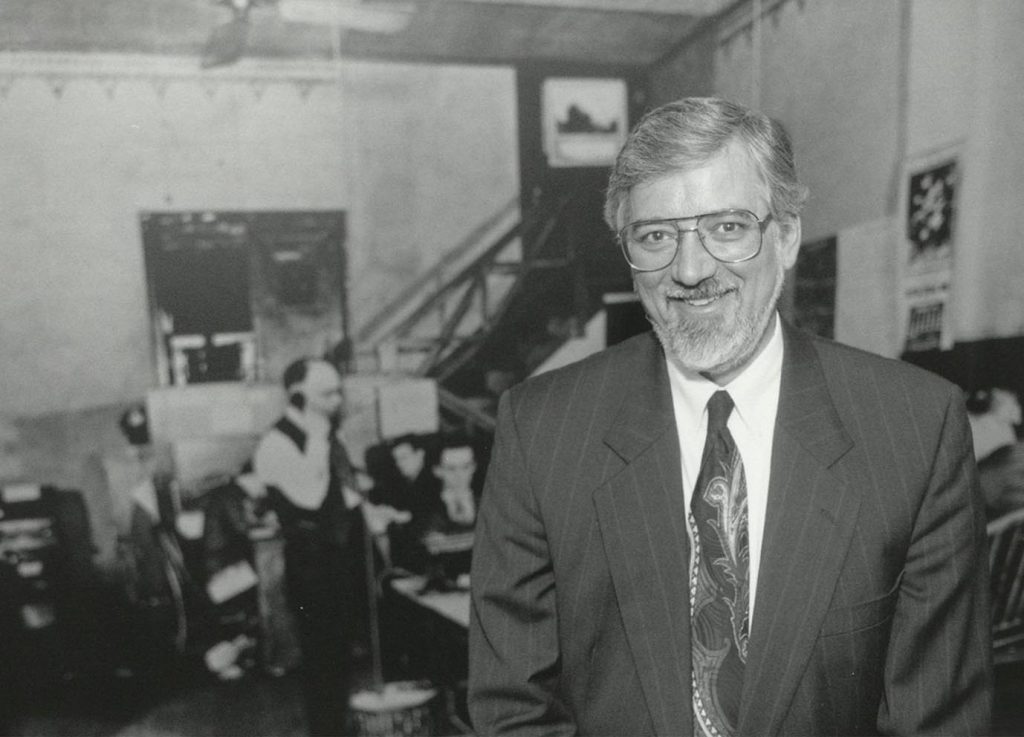
After four decades at KU, media law professor Mike Kautsch is retiring after the spring semester. Kautsch who has focused on First Amendment protection for newspapers and other media, is a former journalist and former dean of the journalism school.
“I truly have enjoyed the University of Kansas,” Kautsch said. “It’s been a fabulous institution.”
After Kautsch retires from teaching, he plans to remain active in the sphere of the First Amendment and laws that require government officials to open their records and meetings to the public. With the help of four former KU Law students, Kautsch formed the Kansas Institute for Government Transparency, Inc.
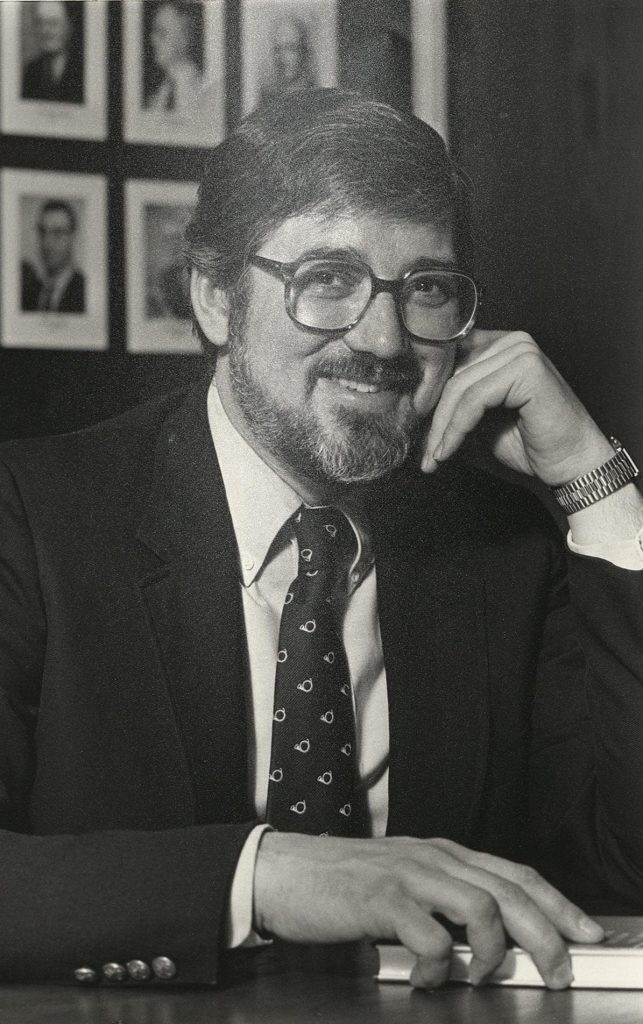
KIGT aims to educate the public about transparency laws; privacy rules and regulations that affect the public’s access to information; and citizens’ First Amendment rights to express themselves freely.
Kautsch taught at the University of Kansas’ William Allen White School of Journalism & Mass Communications for 18 years and at the University of Kansas School of Law for 22 years. During his time at the journalism school, he served as dean for a decade.
Kautsch left his post as journalism dean in 1997 to develop a program on Media, Law and Policy at KU Law. In 2011, the name of the program was changed to Media, Law and Technology to adapt to the growing influence of technology in the reporting and gathering of news.
“Technological change is something that needs attention in a curriculum like ours here at the KU School of Law,” Kautsch said. “It so drastically influences human behavior. We have to try to make sure the law keeps up with that.”
The Media, Law and Technology program includes courses on media law, First Amendment advocacy, privacy and intellectual property. Kautsch’s favorite course to teach is Media and the First Amendment.
“I’ve really enjoyed working with students to identify and understand the implications of various First Amendment precedents,” Kautsch said.
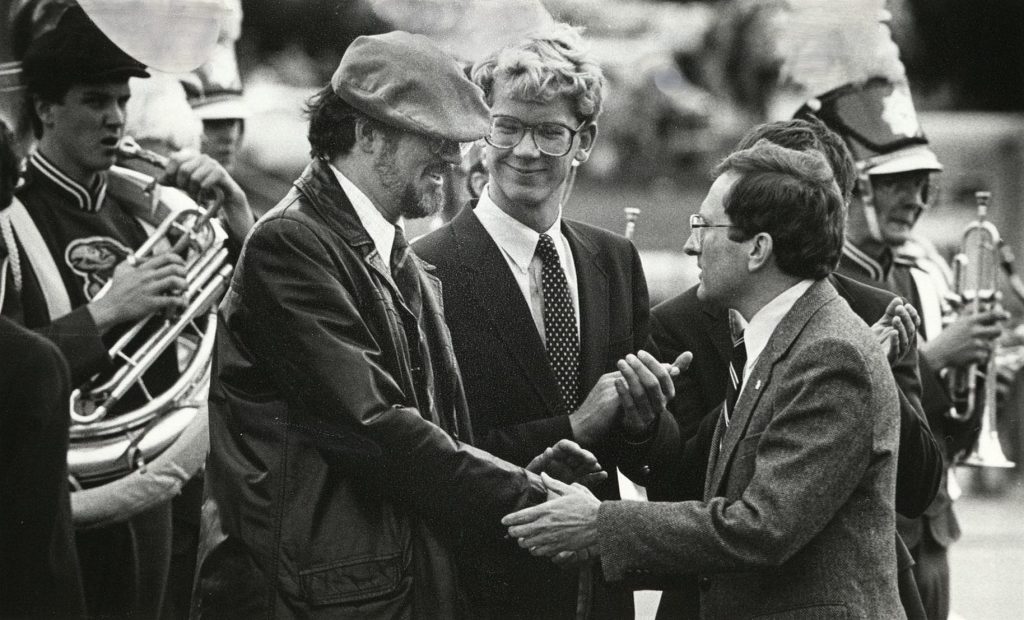
Kautsch has received a number of awards, including the Honor for the Outstanding Progressive Educator Award in 1985 and the Outstanding Service Award from the Kansas Bar Association in 1997 for his contributions to media-bar relations.
In 2017, he was inducted into the Kansas Newspaper Hall of Fame.
Kautsch has helped plan and present the annual Media and the Law Seminar in Kansas City, Missouri for many years. He also incorporated the seminar into the curriculum for the Media, Law and Technology program to ensure that KU Law students were involved in the seminar.
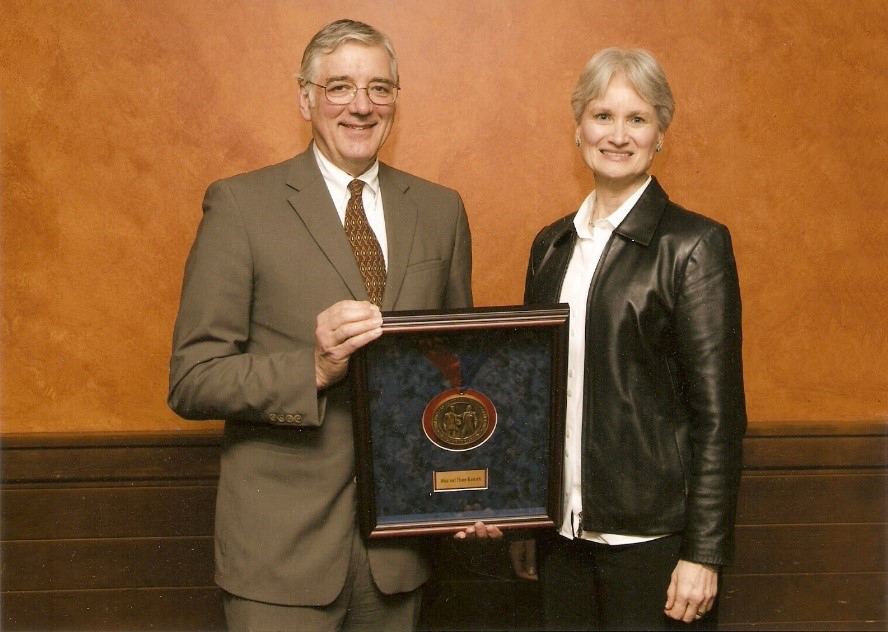
“I was happy to be able to involve students as delegates from the law school to attend the seminar,” Kautsch said. “For them, it was a great opportunity to network and meet practicing media lawyers from all over the country.”
In addition to teaching, Kautsch has testified before Kansas legislative committees on media-related bills, chaired the Media Bar Committee of the Kansas Bar Association and served on the legislative affairs committee of the Media Law Resource Center in New York.
Kautsch is also a longtime media law consultant to the Kansas Press Association. In 2010, he was one of the leaders of the effort in Kansas to establish a new shield law for journalists. The shield law spells out circumstances in which reporters may quash subpoenas demanding the identities of their confidential sources.
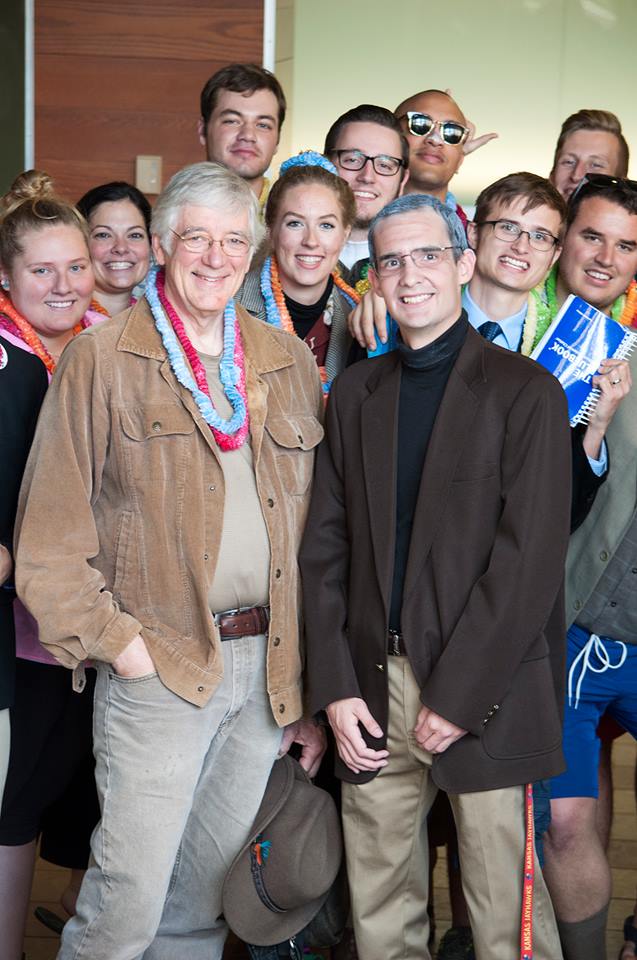
“It took probably 10 years, but eventually the Kansas Legislature did enact a reporter shield law,” Kautsch said. “It’s on the books to this day. It was pretty rewarding to have that.”
Kautsch holds degrees in journalism and law from the University of Iowa. Before coming to KU, he worked as a newspaper journalist for about 10 years, mostly in the South.
As a Nebraska native, he was initially drawn to KU because it reminded him of his Midwestern roots.
“When I first visited Kansas, I had this strong sense that I was home,” Kautsch said. “It felt natural to be here. The sense of community here at KU has really solidified my feeling that this was home for me.”
— By Ashley Hocking